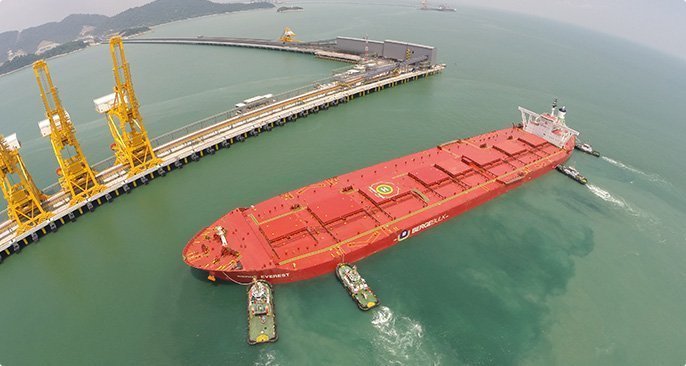China, the sulphur cap and the valemax playbook

This week China outlined its own sulphur cap plans which are set to kick in earlier than the global regulations from the IMO as well as being more demanding – 0.1% limits rather than 0.5% – in certain areas. The nation’s rivers and the coastline around the southern holiday island destination of Hainan will get the 0.1% treatment first with Beijing saying it will review the situation with a possible 0.1% cap going nationwide from 2025.
Allow me to be so bold as to join the dots on the thinking in this shipping ploy. We have been down this path – or cul de sac – before with the valemax saga.
Splash continues to hear that China’s Maritime Safety Administration is not in favour of open-loop scrubbers.
I find it especially intuitive to look at what state-run Cosco, with a fleet in excess of 800 ships, has planned to be cap compliant. Note how Asia’s largest shipping company has bought just one ‘trial’ scrubber to date. Note too how state-run oil giant Sinopec has let it be known it will have plenty of low sulphur fuel available from next year and all of a sudden the sooty picture becomes clearer.
By imposing a cap a year ahead of the official global regulation Chinese carriers will be able to fine tune how their ships work with lower sulphur content fuel, get global bunkering options better in place and generally be better prepared for the potential chaos that might (or might not, is this shipping’s Y2K moment?) prevail on January 1, 2020. And then a little further down the line it can impose trading restrictions on ships it does not like, such as those with open-loop scrubbers. All the while, ironically, the nation’s hard-pressed yards have gained a bunch of extra, much needed work installing scrubbers for overseas owners.
China’s joined up thinking when it comes to trade and maritime transport has seen the one-party state become astute at playing the long game for supply chain control.
Witness Vale’s ill-advised mega bulker gamble from 10 years ago. The Brazilian miner’s bid to build up its own fleet of giant valemax bulkers to wrest control of its own supply chain costs was thwarted rather simply at the hands of Chinese shipowners and regulators who banned the ships from entering Chinese waters on safety grounds until Vale was forced to sell them. The sulphur cap and China’s plans for it is merely valemax redux a decade on.

Great Read Sam,
Think this will pan out in exactly the same way, and unfortunately, cannot see how the world of shipping can safeguard against this. The Liquid trades, may have an additional incentive to install the Scrubbers as Oil Majors may chose to boost their environmental and social responsibility and give preference and pay a premium for the eco vessels. But for the dry trades, it is a big gamble. Invest now get a premium for the ship in a years time, or invest now but find your investment redundant……Lets see